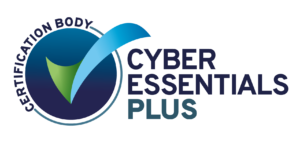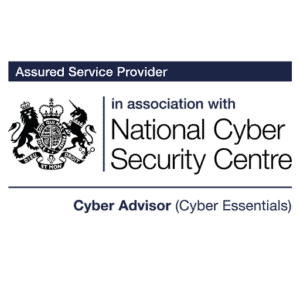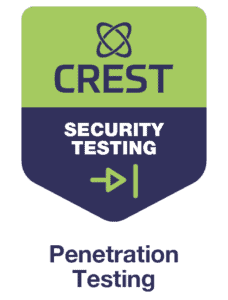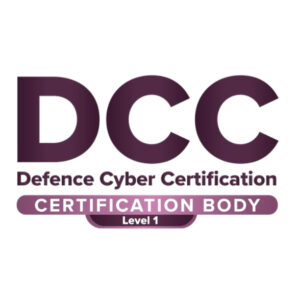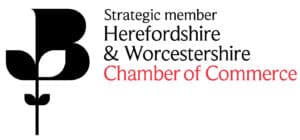The Defence Cyber Certification: reshaping UK defence supply chain security
13th Jun 2025
Talk to our experts today
13th Jun 2025
In today’s rapidly evolving threat landscape, the UK’s defence sector faces unprecedented cyber risks. As attacks grow more sophisticated, the need for robust, standardised cybersecurity across the entire supply chain has never been greater. That’s where the Defence Cyber Certification (DCC) comes in.
Developed by the Ministry of Defence (MOD) and IASME, the DCC is a comprehensive framework, currently in it’s pilot stage, designed to safeguard every link in the defence supply chain. Whether you’re a large prime contractor or an SME, understanding and achieving DCC certification is now essential for doing business with the MOD in the future.
What Is the DCC and Why Is It Important?
The DCC is a new, independently assessed cybersecurity certification tailored for UK defence suppliers. It builds on the MOD’s existing Defence Standard (05-138) and aligns with international best practices. Unlike previous self-assessment models, the DCC introduces rigorous, evidence-based certification with mandatory annual reviews and full recertification every three years. This shift ensures consistent, auditable cyber resilience across all suppliers.
How Will Your DCC Level Be Assessed?
DCC Certification Bodies will be responsible for assessing the new standard. With our extensive defence sector cyber experience, Assure Technical will be one of these Certification Bodies.
Take proactive steps now: Contact our experts today to start your journey to DCC certification. Secure your future in the UK defence sector and demonstrate your commitment to cyber excellence, reach out now – your next contract could depend on it.
There are four levels of certification, as summarised below:
| Level | Controls | Requirements |
|---|---|---|
| Level Zero | 3 | Basic controls, entry-level requirement |
| Level One | 101 | Substantial controls, starts with Cyber Essentials |
| Level Two | 139 | Advanced controls, requires Cyber Essentials Plus |
| Level Three | 144 | Highest controls, requires Cyber Essentials Plus |
Required certification levels will be determined by each contract’s specific cyber risk profile. The MOD will assess your projects’ sensitivity and requirements and then assign the appropriate DCC level. This means your organisation’s security measures will be directly matched to the risks you face, ensuring both efficiency and robust protection.
1. From Self-Assessment to Independent Certification
Previously, processes like the Supplier Assurance Questionnaire (SAQ) and Cyber Implementation Plan (CIP) depended heavily on self-assessment. As a result, the consistency and quality varied significantly.
In contrast, the DCC introduces an independent certification system requiring evidence-based assessments. Consequently, this ensures standardised, reliable, and auditable cyber resilience throughout the supply chain.
2. Linking Security to Contractual Risks
The DCC framework aligns certification levels directly to the risk profile of contracts. Thus, suppliers must meet security requirements proportional to the sensitivity of their projects.
This approach effectively allocates resources, preventing both excessive and insufficient security measures.
3. Raising the Security Baseline for Every Supplier
All suppliers must now meet at least the minimum cybersecurity standard, beginning with Cyber Essentials. Additionally, higher-risk contracts demand progressively advanced controls.
This strategy addresses vulnerabilities, particularly among smaller businesses (SMEs), which have historically posed significant security risks.
4. Encouraging Continuous Improvement
Certification is not a one-time requirement. Suppliers must undergo annual check-ins and full recertification every three years.
As a result, this continuous process promotes ongoing improvement and vigilance, moving away from mere compliance checklists.
5. Enhancing Trust and Transparency
Prime contractors and the MOD can confidently select suppliers with verified cybersecurity standards. Moreover, the DCC offers transparent, sector-wide assurance, simplifying procurement and reducing uncertainty.
Take Action: Secure Your Place in the Defence Supply Chain
Are you confident your business meets the new DCC standards? Don’t leave it to chance. Here at Assure Technical, we’ll help you understand your current posture, identify gaps, and chart your fastest path to DCC certification. Act now – every day you wait increases your exposure and risks your eligibility for future defence contracts.
Contact our cyber specialists now for a free, no-obligation consultation.
Enhanced Resilience Against Cyber Threats
Cyber-attacks are becoming more sophisticated. The DCC ensures all suppliers are adequately equipped, significantly reducing the risk of successful cyber breaches.
Reducing “Weakest Link” Risks
The DCC minimises vulnerabilities by setting uniform standards across suppliers. As a consequence, attackers have fewer opportunities to exploit weaker links in the supply chain.
Competitive Advantage for Certified Suppliers
Suppliers holding DCC certification become more attractive to MOD and prime contractors. Clearly, cyber resilience is becoming crucial in procurement decisions.
Alignment with National Cyber Strategy
The DCC aligns closely with the UK’s broader cybersecurity strategy. It reinforces the MOD’s dedication to secure and resilient defence operations across society.
The Defence Cyber Certification marks a major shift from fragmented self-reporting to unified, independently validated cyber risk management. Consequently, this approach significantly strengthens the UK’s defence supply chain. It positions cybersecurity as an essential, demonstrable requirement for all suppliers, enhancing resilience, trust, and operational continuity in a challenging threat environment.
Additional reading: Ministry of Defence cyber guidance pages.
Get in touch with our expert consultants for straight-talking, jargon-free technical security advice.

